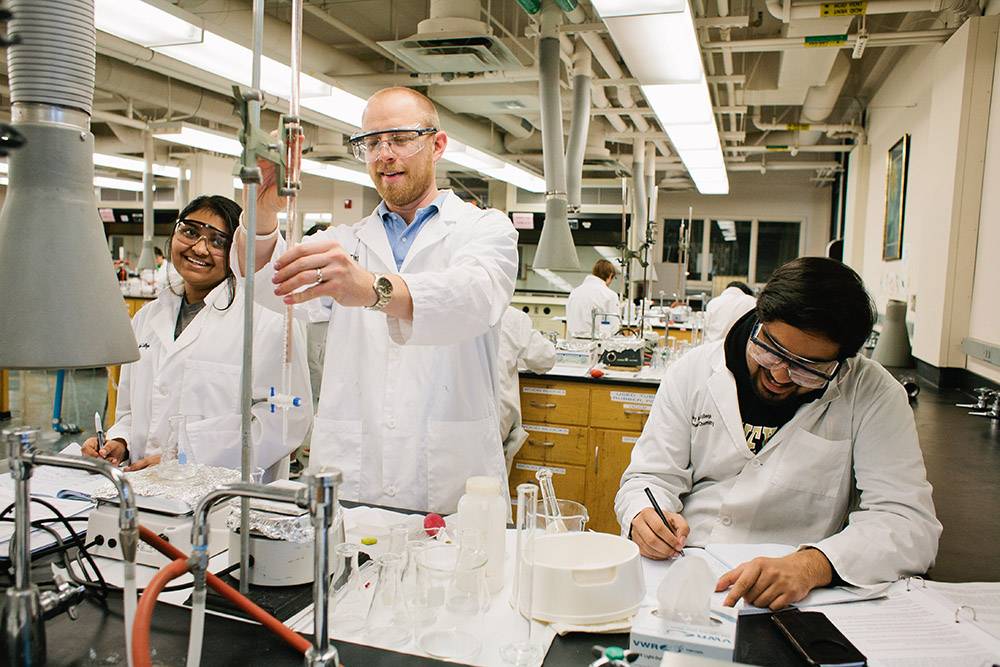College Receives Chemistry Instrumentation Grant
November 9, 2015
Modern chemistry instruction relies on active-learning methods, including the use of instrumentation to better understand molecular structure and the properties of matter. A generous gift from the Fletcher Jones Foundation will enable Harvey Mudd College to continue offering high-quality experiential learning that transforms students into professionals.
The $470,000 grant will enable the Department of Chemistry to address instrumentation needs in its chemistry laboratory courses for first years and sophomores. Part of the College’s Core Curriculum, introductory chemistry is a requirement for all students. The physical chemistry class plays an integral role in many students’ decisions to major in the chemistry degree program, which is American Chemical Society-approved.
“Harvey Mudd College has achieved a reputation of outstanding quality in its chemistry program based in part on the access it gives students to sophisticated research-grade instrumentation in both instructional and research laboratories,” says Kerry Karukstis, Ray and Mary Ingwersen Professor of Chemistry and chair of the Department of Chemistry. “This funding enables the department to upgrade and augment its instrumentation holdings primarily for use in our instructional laboratories.”
The department will upgrade its UV-visible spectrometers with a suite of 12 modern, computer-controlled instruments that will be used throughout the curriculum (especially in the general chemistry laboratory). It will also introduce two bench-top nuclear magnetic resonance (NMR) instruments for molecular structure determination in the first-year course and will add a modern laser light-scattering instrument for the physical chemistry laboratory (a technique used to determine molecular size and the strength of intermolecular forces).
In addition to acquisition of the instrumentation itself, the department is interested in assessing the impact of modern instrumentation on such factors as student interest in chemistry, intellectual curiosity and ownership over the process of discovery. Department leaders will work with the director of institutional research and effectiveness to design appropriate assessment tools for evaluating these factors.
“We want students to have hands-on experience with modern scientific instrumentation and understand the kinds of information different instruments yield,” says Karukstis. “Students will see that chemistry is an important contemporary science that contributes to the discovery of new knowledge and the solution of human and environmental problems.”
The department has begun to acquire the instruments and plans to have all installed by summer 2016 and incorporated into fall 2016 courses. Three members of the chemistry faculty have taken the lead in developing this project, with each overseeing the initial installation of one of the instrumentation components and assuming responsibility for training other members of the faculty in its use. The faculty members are Karukstis, Associate Professor of Chemistry David Vosburg, and Donald A. Strauss Professor of Chemistry Jerry Van Hecke ’61.
Governed by a board of trustees drawn from the ranks of business, law, finance, banking, education and government, the Fletcher Jones Foundation supports private colleges and universities throughout California.
